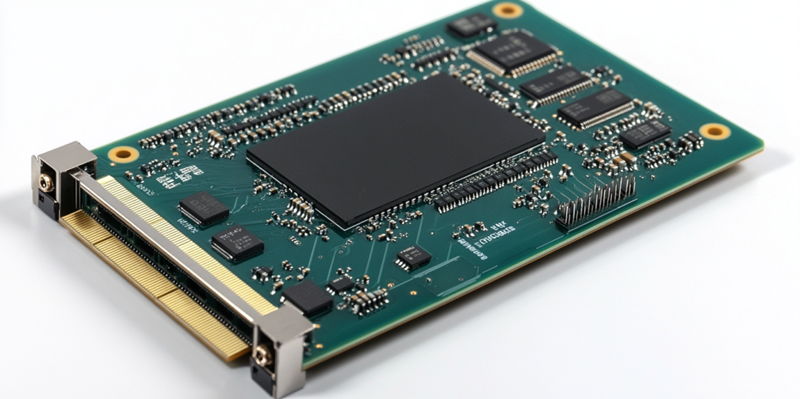AMD has unveiled its fourth-generation EPYC Embedded 8004 Series processors, setting new industry standards for performance and energy efficiency in the embedded market. Known for pushing the boundaries of embedded processor capabilities, AMD focuses on delivering exceptional efficiency, connectivity, and innovation, particularly in networking, storage, and industrial applications.
Performance and Efficiency
The AMD EPYC Embedded 8004 Series processors are specifically designed to manage compute-intensive tasks in environments where space and power are at a premium. By incorporating AMD’s “Zen 4c” cores, these processors offer a notable boost in core density and performance-per-watt. There is a 30% performance improvement over the previous generation “Zen 3” cores. This increased performance ensures that devices can handle demanding workloads without compromising on energy efficiency.
Versatility Across Applications
These processors excel in a wide range of demanding environments, such as networking systems, routers, security appliances, cloud storage, and industrial edge applications. Their versatility makes them ideal for seamlessly managing various dynamic workloads. Whether it is warm or cold cloud storage or the intricate needs of industrial edge computing, these processors are up to the task. This flexibility provides developers with the tools to build highly adaptable systems.
Robust Technical Specifications
The new EPYC Embedded 8004 processors are available in multiple configurations, ranging from 12 to 64 cores and 24 to 128 threads. They support up to 1.152TB of DDR5 memory and offer high-speed I/O connectivity with 96 lanes PCIe® Gen 5. The processors also feature significant memory bandwidth using six channels of DDR5-4800. These technical specifications enable flexible and scalable system configurations, suitable for a variety of applications, particularly those that require high-speed data processing and large memory capacities.
Compact Design with Long-Term Support
The SP6 socket form factor of these processors is 19% smaller than previous models, saving valuable space while maintaining energy efficiency. Despite their compact design, these processors promise a lifecycle support of seven years, ensuring reliability for long-term platform use. This combination of a smaller footprint and extended support lifecycle makes them particularly appealing for system designers seeking dependable, long-lasting solutions.
Industry Trends and Implications
The launch of the AMD EPYC Embedded 8004 Series reflects broader industry trends focusing on the balance between power and performance in modern processors. With increasing demand for compact, high-density computing solutions, processors like these are crucial in meeting market needs. AMD’s integration of “Zen 4c” cores into their embedded series marks a significant innovation, underscoring the company’s leadership in this domain.
Conclusion
AMD has introduced its fourth-generation EPYC Embedded 8004 Series processors, which set new benchmarks for performance and energy efficiency in the embedded market. These processors aim to redefine the capabilities of embedded systems, focusing on exceptional efficiency, connectivity, and innovation. Primarily designed for networking, storage, and industrial applications, the EPYC Embedded 8004 Series offers enhanced performance and power-saving features that are crucial for modern embedded systems.
AMD has consistently pushed the limits of what embedded processors can achieve, and this latest series is no exception. By providing better efficiency and superior connectivity options, it caters to the growing demands of the industry. The increased performance capabilities make these processors ideal for a variety of applications, ensuring that they can handle complex tasks with ease and reliability.
Moreover, the EPYC Embedded 8004 Series stands out by offering cutting-edge technology that meets the stringent requirements of today’s high-performance embedded computing environments. This innovation not only supports current needs but also prepares for future advancements, making it a forward-thinking choice for developers and engineers in the field.

